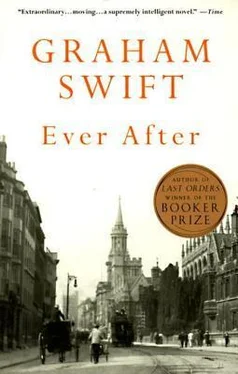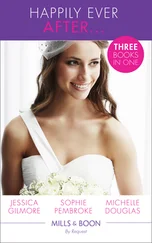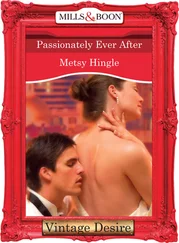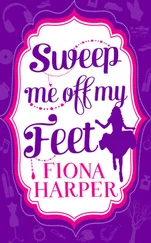What was she supposed to have done? An Ophelia routine? Talked to the flowers?
So, have I got it all wrong? I invent. I imagine. I want them to have been happy. How do I know they were ever happy? I make them fall in love at the very first meeting, on a day full of radiant summer sunshine. How do I know it was ever like that? How do I know that the Notebooks, while they offer ample evidence for the collapse of Matthew’s marriage, were not also a desperate attempt to keep alive its myth, and that even when he seems most honest Matthew, with much display of fine feeling, tender conscience and wishful thinking, only beats about the bush of an old, old story?
An old story. Cuckoo! Cuckoo! Happens all the time. The way of the world. Even a clergyman’s daughter. Even a Victorian clergyman’s daughter. Così fan tutte (and tutti too). God damn it, it was how you were born .
And Ruth. And Ruth? No, I don’t believe that she ever— But suppose, suppose. In the days before I became her manager. Her minder … The freedoms of these theatrical folk, the way they touch and kiss and hug, and slip in and out of roles … No, I don’t believe she ever really— But what if she had? What if she had? Would she have been someone other than Ruth? People aren’t defined by other people. We have to be ourselves.
Talk to the flowers. My prerogative, here in this garden. There is a buddleia bush, a clump of buddleia bushes, over there at the far end of the herbaceous border, assigned the rather lowly function of screening a compost heap. And buddleia bushes must still have the same properties they had more than a century ago, because even now, even from here, I can see, against the floppy purple flowers, the intermittent wink of tiny wings.
10th July 1857:
The enigmas of our buddleia bush! To which, while this fair and butterfly-breeding weather lasts, my little Lucy — as the butterflies are attracted to the florets — seems irresistibly drawn …
He wrote the Notebooks for me ?
Perhaps it was Lucy who persuaded her to keep them. If persuasion were needed. Perhaps it was Lucy who, long before that, persuaded her to keep the clock.
The third (surviving) child, the only daughter, and the youngest. She would have been only seven when the news rocked Burlford. The children, of course, made it worse. How could he do it? His own flesh and blood! The downright perversity of it! He laments the death of one, then abandons the others. He heeds the exhortation of Scripture—“Be fruitful and multiply”—then denies Creation. The man must have been mad. Neale’s verdict, no doubt, and others’—disguised under the easy rant of outraged piety and, in Neale’s case, the rectitude of sexual triumph.
But Neale must have considered what he was taking on. The guardianship, the stepfatherhood of three children, all, presumably, in a distraught state of mind. It says something for the attractions of the former Mrs Pearce that, an unencumbered bachelor up to this point, he should have accepted these charges along with her. And it says something, perhaps, for Neale’s own position on the fruitfulness and multiplication question, or for the scruples of the second-time wife (Elizabeth was thirty-six), that no little Neales issued from his marriage.
I make no glib comparisons. Even though there is an entrepreneurial similarity between James Neale and the late Sam Ellison, and both acquired the waifs of scandal. But, of course, Neale chose . As far as the scandal went, perhaps it redounded to his credit — to be the saviour of this damsel in distress, to step in where that godless wretch had left off. Rich businessmen have a penchant for being judged virtuous; abandoned mothers of three need charity.
Of the Pearce children, both the sons were to throw in their lot with their stepfather and go into copper. No, I make no comparisons. We are talking about real ore hewn from the depths of the earth, not factory-made synthetics (though, as it turned out, John and Christopher might have been better off with the latter). Lucy seems to have made a break from the family, over which, by then, new shadows had fallen, when she married in 1872 and moved to London. Yet she took the clock with her. I know this. It is the fact that Elizabeth decided to give it to her (thus inaugurating a tradition) which makes me think that it was Lucy who perhaps persuaded her to keep it in the first place. And, of course, by that time, by 1872, that gift of the clock would have meant so much more.…
With Lucy, my mother’s reluctant and not necessarily reliable recollections come into play, along with the faint tug of my remote consanguinity with Matthew. For it was Lucy’s daughter, Alice, who in the early years of the century married the talented but ill-starred surgeon, George Rawlinson, inventor of the Rawlinson Forceps, and thus became herself the recipient of the clock. The fact that Lucy chose to pass it on suggests that her own marriage, of which I know very little, may have been a happy affair. All Lucy’s woes, perhaps, lay in the memory of her suddenly blighted childhood and in the tribulations that her own daughter, seemingly so well set up, would bring her. It is strange to think that “little Lucy,” she of the evening gig rides with her father, died only some dozen years before I was born, living long enough to contend with the surgical catastrophe that ended her son-in-law’s career and the ensuing marital débâcle. In fact, it was probably these things that finished her off.
My mother decried her father’s hubristic ambition. But George, perhaps, was only a man who made mistakes. One was that dreadful slip of the scalpel. Another, so it proved, was to have married, in his middle years, a woman substantially younger than himself, with a robust will of her own. It was Lucy’s daughter, Alice, possessor of the nuptial clock, who responded to her husband’s ruin by rapid and brazen flight to the arms of another man — a Latin lover, no less, called Salvatore. Whether this was the expedient of the hour or whether something had been going on for some time already is anybody’s guess. I think my mother’s somewhat unfilial guess would have been for the latter. Poor George really had it coming to him.
We seem to have been this way before. This butterfly love. January and May. Cuckoo! Cuckoo! I do not say that history repeats itself. Or that my mother learnt from her mother’s example. I do not say that the beneficent clock was fast becoming a curse. My grandmother hung on to it, as part of the spoils of divorce, following which event, my mother’s relations with her mother were understandably tenuous. We are moving into that vexed period when my mother (discovering her gift of song) and her brother became unhappy dependants upon my great-uncle Ratty’s grudging and tortuous whims — while my unrepentant grandmother seemed to be having a high old time, much of it cheerfully out of the country, in such places as Monte Carlo and Capri. Remarkably, my mother seems never to have held this against her. Perhaps it secretly inspired her. And, indeed, the runaway Alice showed up, at least, for her daughter’s wedding (to the consternation, I can imagine, of the stiff and military bridegroom) — which is how my mother became the next proprietor of the clock.
As for the Notebooks, I don’t know if they came from Lucy to my mother via George (and/or Ratty) or via my grandmother. In any case, it’s plain that they were simultaneously preserved and overlooked. I can’t imagine they would have been of vital interest to Alice, while Uncle Ratty would have dismissed them as having nothing to do with the Ralegh hypothesis. But I can envisage my grandfather, man of science, after all, grey-matter specialist, being strangely drawn in his last, lonely, woebegone years (what am I saying ?) to Matthew’s sceptical lucubrations.
Читать дальше












